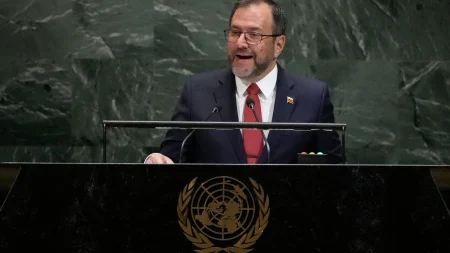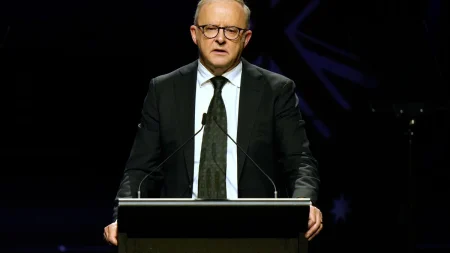Karl Nehammer’s impending resignation as Austria’s Federal Chancellor marks a significant turning point in Austrian politics, injecting uncertainty into the country’s future governance. His announcement, delivered via X (formerly Twitter), follows the collapse of coalition talks with the Social Democratic Party (SPÖ), underscoring the deep divisions within Austria’s political landscape and the challenges in forming a stable government. This development comes after a September election that resulted in a historically narrow majority for the combined forces of the ÖVP and SPÖ, highlighting the fragmented nature of the electorate and the increasing difficulty of forging consensus across party lines. Nehammer’s departure leaves a power vacuum at the top of Austrian politics, prompting questions about the future direction of the country and the potential for new political alliances to emerge.
The breakdown of coalition talks between the ÖVP and SPÖ, despite their historical partnership in governing Austria, signals a significant shift in the country’s political dynamics. The inability of these two traditionally dominant parties to reach an agreement reflects the growing polarization of Austrian society and the emergence of new political forces challenging the established order. The narrow majority achieved by the ÖVP and SPÖ in the September election further exacerbated the challenges of forming a stable coalition, as neither party possessed sufficient leverage to dictate the terms of a governing agreement. Nehammer’s resignation underscores the difficulty of navigating this complex political terrain and suggests that the search for a viable governing coalition may be protracted and fraught with uncertainty.
Nehammer’s leadership of the ÖVP has been marked by a period of political turbulence and declining electoral fortunes. The party has faced increasing pressure from both the left and the right, with voters expressing dissatisfaction with the government’s handling of key issues such as the economy, immigration, and the COVID-19 pandemic. The September election results, which saw the ÖVP and SPÖ secure their smallest combined majority ever, underscored the erosion of support for these traditional parties and the growing appeal of alternative political options. Nehammer’s decision to step down suggests a recognition of the need for new leadership within the ÖVP to revitalize the party and regain public trust.
The search for Nehammer’s successor within the ÖVP will be a critical moment for the party and for Austrian politics as a whole. The choice of a new leader will shape the party’s future direction and its ability to forge alliances with other political forces. The next leader will face the daunting task of uniting a divided party, addressing the concerns of a disillusioned electorate, and navigating the complex challenges facing Austria in a rapidly changing global landscape. The outcome of this leadership contest will have profound implications for the future of Austrian politics and the country’s ability to address its pressing domestic and international challenges.
The implications of Nehammer’s resignation extend beyond the internal dynamics of the ÖVP and have significant ramifications for the future of Austrian governance. The uncertainty surrounding the formation of a new government raises questions about the country’s political stability and its ability to effectively address critical policy issues. The protracted negotiations and potential for new elections could further deepen political divisions and create a sense of instability at a time when decisive leadership is needed. The next government will face a range of pressing challenges, including economic recovery, climate change, and the ongoing war in Ukraine, requiring a strong and cohesive leadership team to navigate these complex issues.
In conclusion, Karl Nehammer’s resignation as Austria’s Federal Chancellor marks a pivotal moment in Austrian politics. His departure, following the collapse of coalition talks with the SPÖ, highlights the deep divisions within the political landscape and the challenges in forming a stable government. The narrow election results, combined with the erosion of support for traditional parties, have created a volatile political environment, characterized by uncertainty and the potential for significant shifts in power. The search for Nehammer’s successor and the subsequent formation of a new government will be crucial in determining the future direction of Austrian politics and the country’s ability to address the pressing challenges it faces. The coming months will be critical in shaping the political landscape of Austria and determining the course of the nation’s future.














